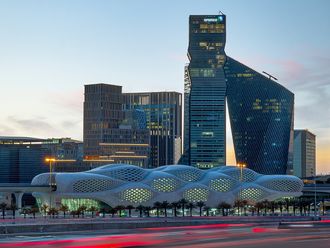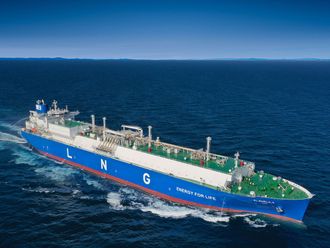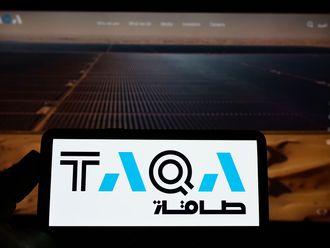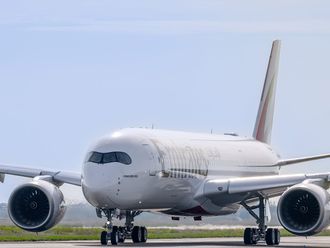Abu Dhabi: With the exception of Qatar, the Gulf Cooperation Council (GCC) states are facing increasing gas shortages, according to Deloitte's 2011 Oil and Gas Reality Check report.
Together the member nations of the Gulf Cooperation Council — Bahrain, Saudi Arabia, Kuwait, UAE, Qatar and Oman — hold about 23 per cent of the world's gas reserves.
"While they sit on top of some of the world's most abundant natural gas reserves, they are struggling to find enough of this clean-burning resource to meet their growing electricity demand," said the report.
The report said one factor behind the natural gas shortage is the booming GDP (gross domestic product) growth across the GCC. "GCC economies are growing at a rate of about seven per cent a year, which is spurring demand for both gas and electricity. Another factor is the strain of subsidies. Many Gulf states sell natural gas as well as electricity at highly subsidised rates.
Viable solution
The UAE offers a case in point. As recently outlined by the Petroleum Economist, production costs of deep and mildly sour gas projects in the Gulf are between $5-$6 per million British thermal units [Btu), but domestic sales prices in the UAE range from $0.75-$2.00 per million Btu."
The report said that in the short-term, low prices resulting from subsidies were encouraging producers both at home and in neighbouring countries to export their gas to Asia where it could command more than twice the price that it can within the Gulf region.
"This situation is creating immediate shortages, the only viable solution to which is costly liquefied natural gas imports from Europe. In the long-term the consequences could be even more severe. The low-price environment is constraining upstream investment as producers increasingly find development of gas fields to be uneconomical. The reality is that today's lack of infrastructure investment is likely to have supply repercussions for years to come," it added.
"Although there is a high level of awareness among these countries as to the effects of subsidies, there is still a great amount of debate and uncertainty over how the issue should be tackled," said Mutasem Dajani, oil and gas partner at Deloitte in the Middle East.
"Oil prices are headed towards $110-$120 a barrel by this time next year led by the Chinese and Indian demand. Even if the US oil demand doesn't grow much, the base demand is going to ensure that the US will continue to be the world's largest importer of crude oil in the foreseeable future," Dalton Garis, Associate Professor of Economics and Petroleum Market Behaviour at the Petroleum Institute in Abu Dhabi told Gulf News.
"It is my guess that the GCC countries are likely lining up sources of sweet gas from the international markets to meet their burgeoning demand," he added.
"The development of tight gas supplies in Europe and North America could be a real game changer in the near future," said Garis.
subsidies
telling impact
$5-$6
per mBtu is gas production cost in the Gulf on average
$.75-$2
per mBtu is subsidised selling price range in UAE












